Gestlife's legal services, the most awarded in the sector
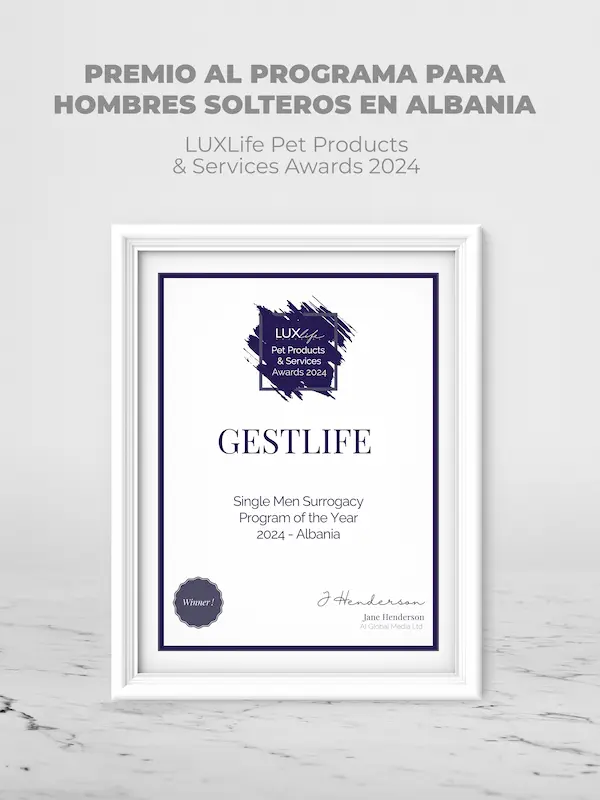


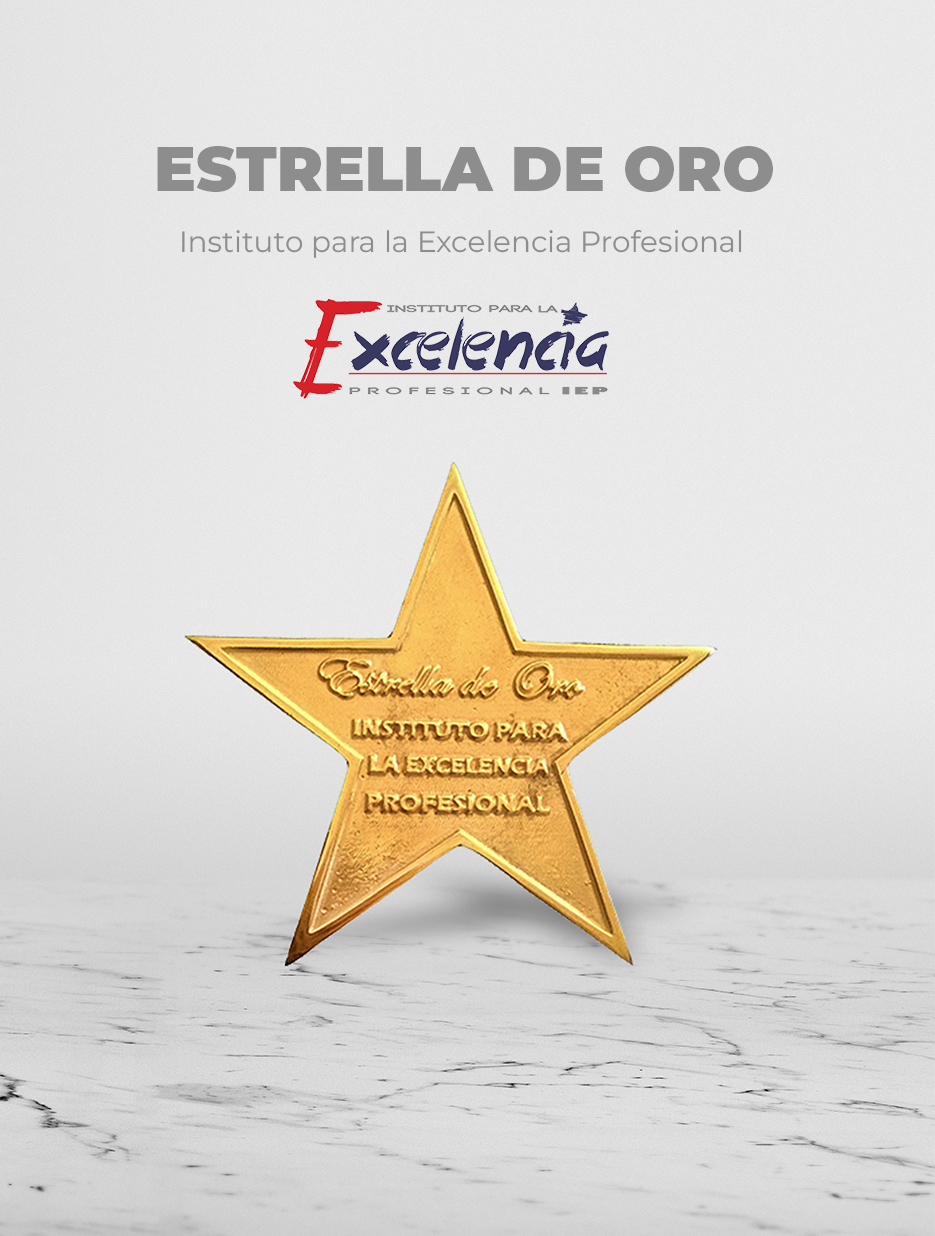
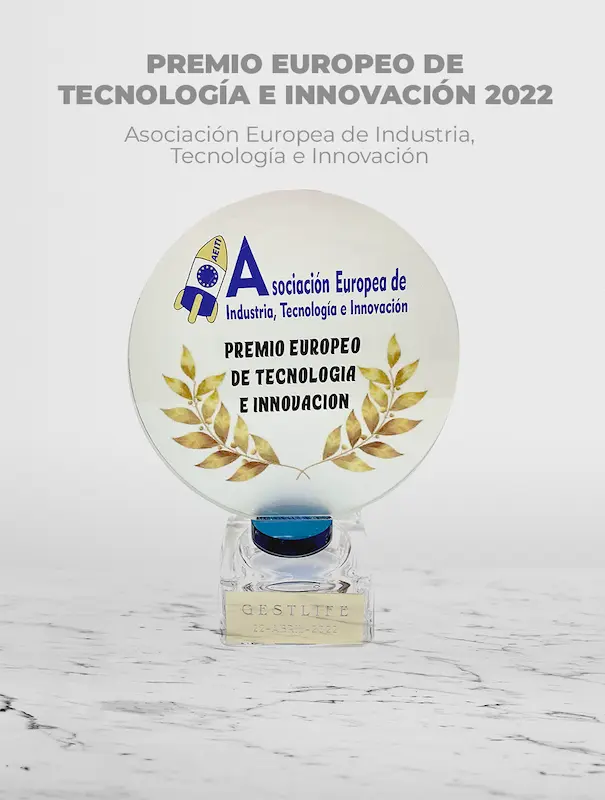
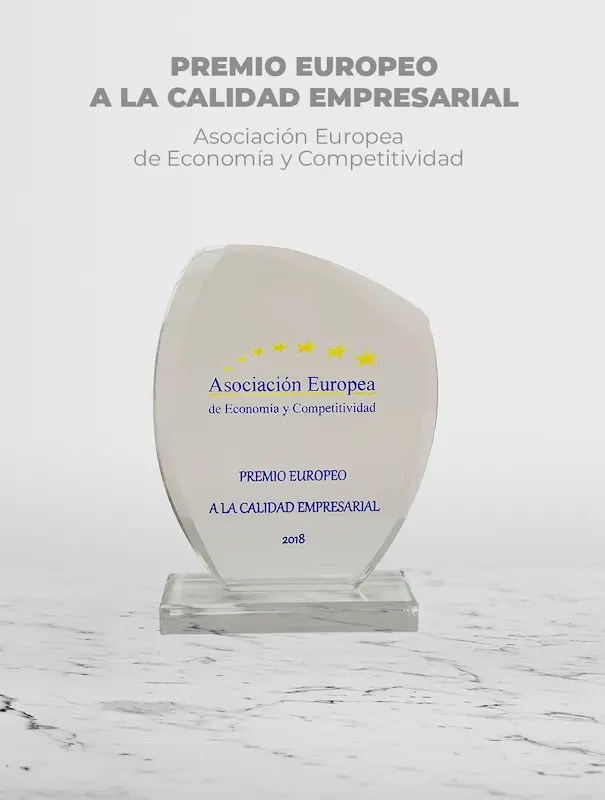
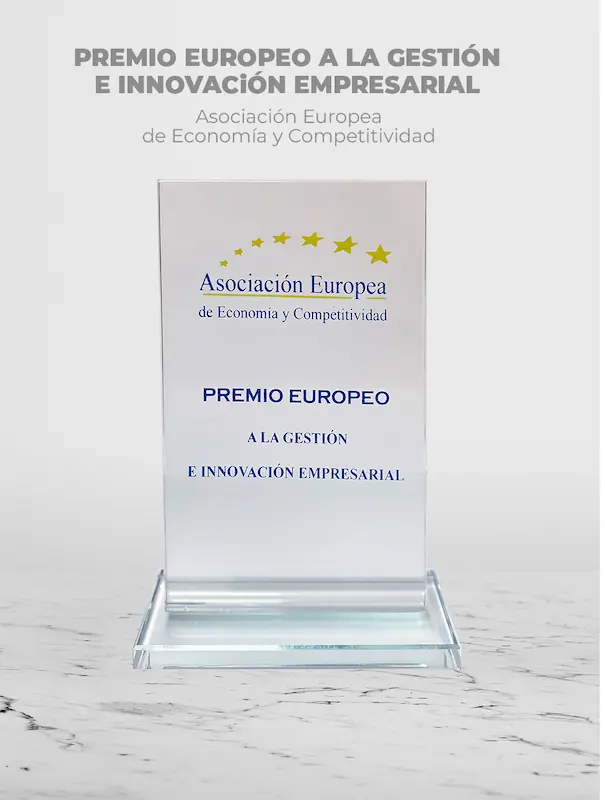


Most choose Gestlife
Surrogacy is our life










In a surrogacy process, every day we live this experience as the first day. Because the greatest reward is not the money, it is seeing your children in our offices because you make us feel complicit in your happiness. Our guarantee is based on the success of knowing that we will make you happy.
After so many years dedicated to surrogacy, it is still hard for us not to get excited when we see him or her happy. So, for something so important, let us take you by the hand, and before you know it, your child will be here. It's a miracle we perform every week.
For surrogacy processes we have a price adapted to your needs with financing plans in case you need it. Get free information on everything we can do for you in terms of surrogacy.
Who is affected by this code of ethics on surrogacy? GestLife® as well as all subsidiaries of the INVESTMEDICAL group make sure that all their staff, including the management, as well as their partners abroad comply with the following code of ethics and are aware of it.
1. Independence: We are totally independent of the agencies, we do not charge commissions from them as intermediaries do, we do not owe them any loyalty nor do we depend hierarchically on any foreign agency or clinic, so we exclusively defend the interests of our clients. It is strictly forbidden to charge commissions from agencies or clinics abroad. Our clients are the parents who want to be parents in spite of everything. We owe it to them and not to third parties.
Professional rigour and ethical conduct: The team of GestLife® and its subsidiaries is not only made up of lawyers, but our permanent staff of more than 180 people is made up of professionals from different disciplines such as psychologists, gynaecologists, embryologists, doctors, etc. who are essential in the surrogacy journey. The people who work at GestLife® have been selected for their experience and professional competence. All actions carried out in the exercise of their functions must be governed by professional rigour and responsibility. All staff must behave honestly and ethically in accordance with the values of this code, respecting above all professional secrecy.
3. Quality and Continuous Improvement: We are non-conformist and critical of our own work. The ‘Inspection, development and constant improvement department’ is responsible for methodically and repeatedly reviewing all the company's procedures over time, verifying the maintenance of quality standards, as well as the implementation of changes that result in a possible improvement of the services provided to parents, pregnant women and donors. We are committed to quality in all our actions, both internally and externally, affecting the entire team. We encourage change and continuous improvement of structures, processes and systems. Our strategy is based on a job well done and the collaboration of the whole team.
4. Globality and Internationalisation: Our vocation is international, transnational and multicultural. Our team is made up of people of different nationalities and they work continuously and with a common goal in different countries.
Regarding our surrogacy clients
1. Integrity We work with and for people. Caring for them is our number one objective, and our raison d'être, so we will accompany them at all times throughout the process to make it more bearable, with psychological support if they need it.
We are fully and consciously committed to our clients, ensuring that we meet their needs in a way that is committed to the values of this code. We care about all the implications of a complex process such as surrogacy, both personal and social. Our staff receive specialised training to help, advise and accompany our clients. Our work does not end until the newborn is in the country of origin of the commissioning parents, correctly registered and legalised, and we take care of these formalities if the client requests us to do so.
2. Honesty and Objectivity: We do not depend on others nor do we have other interests to defend. Our recommendations are adjusted to previously defined client profiles, to their economic and personal situation, as well as to their specific needs or their own interests. The information provided to our clients must be objective, verified and up to date at all times. Clarity and truthfulness must prevail in all communications.
3. Confidentiality: We maintain absolute anonymity (unless otherwise ordered by the client) to the parents who are undergoing a surrogacy process, before, during and after the process. Non-public information relating to GestLife® or its business, employees, clients and suppliers is confidential. All employees are entrusted with this information exclusively for the development of their functions and tasks. The entire organisation must ensure that it is kept safe and protected. All personal data will be treated with strict security measures in compliance with current legislation.
4. Tolerance and Respect for diversity: Our customers are as diverse as our employees. The relationship with our customers must be built on the values of tolerance, full equality and respect for diversity. All our customers are treated without discrimination and we provide solutions for each of their personal needs and interests.
5. Trust: Nobody likes to go on a journey alone. The process we undertake is a complex and long journey, so the relationship with our clients must be based on mutual trust. GestLife® assigns each family a ‘personal manager’ who accompanies them throughout the process. The manager must carry out their functions in a way that is close to the client, understanding their needs, resolving their doubts and guiding them throughout the process. We hold your hand throughout the whole process, and do not let go, until you have returned to your country of origin and your child is duly registered in the civil registry. GestLife® is committed to providing a comprehensive service to its clients by offering more and better services every day. Our clients' problems are our problems. Problems can always arise, but our obligation is to offer one or several solutions, which irrevocably lead to the desired goal.
6. Transparency: We maintain a policy of absolute transparency, informing at all times, from the moment we become aware of it, any information that affects the client. We are the only company in Europe that allows you, through Gestlife's exclusive software, INFONOW, to access your file 24 hours a day, 365 days a year, where you can read all the steps taken, consignments, ultrasound scans, medical analysis... other agencies tell you as and when they want. Communication with our clients must be continuous with the commitment to send a weekly report as a minimum. In a process that requires a significant investment, we account for every penny spent on behalf of the client.
In relation to surrogate mothers 1. Surrogate mothers are treated with the same protocol of care as the commissioning parents, without distinction or preference.
2. Pregnant women have the right to legal advice on the process, carried out by lawyers other than those assigned to the commissioning parents. This counselling service shall be extended for up to one year after the end of the procedure.
3. Pregnant women are entitled to a psychological support service provided by a company psychologist for any help they may need in this area. This service is extended for up to two years after the birth of the child.
4. The comfort and well-being of the pregnant women is paramount, and therefore if a pregnant woman comes from a city other than the city where the clinic where the assisted reproduction process is to be carried out is located, she will be provided with accommodation and a diet for her food, so that she can always rest when she arrives in the city before the treatment.
5. In the event that the pregnant woman has a minor child who still requires her care, the pregnant woman shall be provided with a babby sitter service for times when she must be absent for medical treatment.
6. Pregnant women have the right to receive a fair economic compensation, in accordance with the compensation paid in other countries in relation to the standard of living in each of them. GestLife® will fight openly and courageously against the exploitation of pregnant women by some clinics, where they may receive inhumane, degrading, discriminatory or exploitative treatment.
In relation to the implementation of our surrogacy code This code will be implemented and communicated in accordance with the instructions of the Management of GestLife®. The Management undertakes to monitor compliance with this code and will settle the consequences that may involve the violation of the same. Finally, it will establish deadlines and procedures for control, revision and updating of the code. The code of ethics and deontology also controls the professional and ethical standards when performing Assisted Reproductive Technology (ART) and Surrogacy (GS) treatments. The Code is used as a point of reference for all fertility centres we work with in order to seek and ensure the highest standard of practice for all staff involved in clinical activities as well as ethical/moral medical dilemmas. The Code of Ethics is based on the four main principles that exist in modern medicine:
a. First, do no harm (primum non nocere): The safety and health of patients is the most important value in medicine. Health professionals must always ensure that no harm is done to patients.
b. Beneficence: Health professionals must always act in the best interest of the patient, doing everything in their power to improve patients' health status and quality of life. They are expected to choose the most appropriate and beneficial methods of treatment.
c. Autonomy: Patients must have the full right to make a free and independent decision when considering medical treatment. Consent to treatment shall be sought only on the basis of clear and balanced information provided by physicians.
d. Fairness: all patients must be treated equally and have similar access to medical advice, diagnosis and treatment. e. Frequent technological and scientific advances in the field of fertility medicine constantly raise new ethical dilemmas. The Code of Ethics will be a dynamic document that will require continuous development as new issues arise. Key Principles The Key Principles provide a clear statement of the good medical standards that underpin the delivery of care within INVESTMEDICAL Fertility Centres. These Key Standards serve as a means of communication for staff, patients, donors, donor-conceived persons and the public with whom INVESTMEDICAL Fertility Centres engage.
a. We will treat potential and current patients and donors fairly and will not unlawfully discriminate against them.
b. We will have due regard for the privacy, confidentiality, dignity, comfort and well-being of patients and donors.
c. We will have due respect for the special status of the embryo when performing clinical and laboratory procedures.
d. We will give due regard to the welfare of any child born as a result of treatment provided by INVESTMEDICAL clinics.
e. We will provide potential and current patients and donors with sufficient, accessible and up-to-date information to enable them to make informed decisions.
f. We will ensure that patients and donors have provided all relevant consents prior to carrying out any authorised activity.
g. We will conduct all activities with appropriate skill and care and in an appropriate environment, in accordance with good clinical practice, to ensure optimal outcomes and minimal risk to patients, donors, and offspring.
h. We will ensure that all facilities, equipment, processes and procedures used in the conduct of authorised activities are safe and fit for purpose.
i. We will ensure that all personnel engaged in the authorised activity are competent and recruited in sufficient numbers to ensure safe clinical and laboratory practice.
j. Maintain correct and accurate records and information on all clinical and laboratory activities.
k. We shall maintain records of all adverse incidents (including serious adverse events and reactions) and investigate all complaints appropriately and share lessons learned throughout the organisation.
l. We will ensure that all authorised research undertaken meets appropriate ethical standards, and is only carried out when there is clear scientific justification. m. We will conduct all activities with due regard to the regulatory frameworks governing gamete or embryo treatment and research within the particular country in which services are provided. The following section explores a number of specific situations encountered in the provision of fertility services that raise ethical issues of concern for professional staff and service users. It provides a brief background, highlights key issues and sets out a policy for practice related to the Key Principles (above).
1. The moral status of the pre-implantation embryo The pre-implantation embryo is a symbol of human life. This special status of the embryo shall be properly respected when performing Assisted Reproductive Technology treatments, reflecting a responsible attitude towards the child that will be born as a result of these treatments. The pre-implantation embryo cannot reach its potential to become a foetus and potentially a child unless it is transferred into the uterus. Therefore, the attitude towards the pre-implantation and post-implantation stages should be classified according to their potential to lead to the development of a human being
2. The management of cryopreserved pre-implanted embryos and the fate of surplus embryos After an IVF cycle, 1-2 of the previously created embryos are transferred into the patient's uterus, while the remaining good quality embryos are cryopreserved. In some cases, when patients have not expressed their wishes about the fate of their embryos and cannot be contacted, surplus cryopreserved embryos are stored, causing problems in the fertility clinic due to high maintenance costs. Cryopreserved pre-implanted embryos represent the first stage of human life, their primary use will be for the original couple, but the option of donation to another couple or research is also accepted.
a. At all INVESTMEDICAL Fertility centres, an agreement is signed with the intended parents prior to the start of treatment on the fate of the cryopreserved supernumerary embryos; this includes a request to keep them for the couple, including the obligation to cover the costs, and consent to donate them to another couple or for research. Within the contract/consent for storage, it is imperative that patients agree to inform the clinic of any changes in contact details. The consent should make reference to the issue of embryo management if couples separate.
b. Preimplantation embryos may be offered for donation only after appropriate medical evaluation of the donor couple and after counselling and consent of both partners. Egg donation When a woman cannot use her own eggs for IVF, donor eggs can be used instead. Young, fertile women are willing to donate their eggs. Donors are usually given compensation to cover their efforts. Short-term medical risks (due to the hormones used for ovarian hyperstimulation, anaesthesia and the surgical procedure) and unknown potential long-term health outcomes may be associated with the egg donation process.
a. All egg donors and recipients will be informed about possible legal, medical, and emotional issues involved in egg donation.
b. An egg donor may receive compensation to reasonably cover any financial loss incurred in relation to the donation.
c. Donors should be offered the option of entering the egg donation programme as an identifiable or anonymous donor, but are encouraged to remain identifiable in the interest of the resulting child or children.
d. Donors will be informed that they no longer have dispositional control over their oocytes once they have been retrieved, and that they have no legal rights or duties to raise the resulting children.
e. Donors will be informed that they will be screened for infectious diseases and other health-related risk factors, which will be provided with the test results, and will be referred for further counselling or medical care if necessary after the screening.
6. INVESMEDICAL has a duty to provide written information on the manner and timing of conception both to the recipient and to other health professionals involved in the recipient's care upon request.
4. Pre-conception gender selection for medical reasons After natural conception, the probability that a child will be of a particular gender is approximately 50%. Individuals may wish to choose the sex of their baby for medical or non-medical reasons: - Medical reasons: to avoid or reduce the risk of inheriting genetic diseases known to affect children of a specific sex or diseases that show unequal sexual incidence. - Non-medical reasons: social or economic reasons for preferring a child of a specific sex over the other, sex balance where there are already only boys or predominantly of one sex.
a. Sex selection should be allowed if it is intended to avoid risks to the health of offspring, including reducing the chances of a child being affected by a disorder with unequal sexual incidence.
b. Gender selection for non-medical reasons is not accepted. It is also not accepted when it can be applied as an additional selection in the context of medically indicated PGD/PGS Preimplantation Genetic Diagnosis procedures.
5. Fertility treatments when the prognosis is hopeless or very poor Patients may reach a point where their chances of achieving a live birth are very low or non-existent. Some of these patients find it difficult to discontinue treatment. These situations can lead to conflicts of interest between physicians and their patients. While patients will try anything to have a child and may wish to make autonomous decisions regarding medical treatments, physicians have professional interests in minimising harm and avoiding the frustration (and cost) of providing virtually useless treatments.
6. Child welfare in medically assisted reproduction Fertility treatments treat or prevent medical problems that may be interfering with the ability to have children. Fertility specialists usually focus on the medical aspects of the situation, but are sometimes confronted with patients who do not seem well suited to provide safe and appropriate care for children. Concerns about parenting capacity and the possibility of causing significant harm to a future child are legitimate.
a. Those seeking treatment are entitled to a fair assessment. The wishes of all involved shall be taken into account and the assessment shall be conducted in a non-discriminatory manner.
b. Services may be withheld on the basis of well-founded judgments of the patient's inability to provide minimally adequate or safe care for the offspring. The assessment of the patient's inability to care for a child or the potential for harm to a child should be made jointly among the different professionals on the team, always including an independent opinion. The psychological assessment should be complemented in some cases by social work professionals. c. Persons with disabilities should not be denied fertility services solely because of their disability.
7. Medically assisted reproduction in single, lesbian and gay and transgender couples Medically assisted reproduction is mainly offered to heterosexual couples (whether married or in a stable relationship). However, there are increasing numbers of requests from single people and people with other sexual identities, including lesbian (lesbian) couples, gay (homosexual) couples and, more recently, transgender men and women. Reproduction is a basic element of people's autonomy regardless of sexual orientation. Medically assisted reproduction in the situations described above is morally good in many cases. There is no good reason to rule out a priori access in these situations. Health is defined not only by medical facts but also by social conventions and justifications. Medically assisted reproduction in these cases can be seen in this broader sense. a. INVESTMEDICAL fertility clinics will always take into account the legal frameworks in the countries where they operate, while fulfilling their mission to assist those who wish to procreate and create a family. b. If there are concerns about the implications of assisted reproduction on the welfare of any of the persons involved, including the prospective child, a surrogate mother or the applicants themselves, these concerns should be carefully considered in the light of the available evidence.
8. Surrogacy A gestational carrier (surrogate) is a woman who carries a child that has no genetic relationship to herself, for a person or couple who intend to be the legal parent of that child. Initially, gestational surrogacy was applied to cases of intended opposite-sex parents who had fertility or medical problems that prevented the female partner from carrying the pregnancy. Today, the process is also used for individuals and same-sex couples who wish to become parents.
a. Surrogacy can be facilitated through assisted reproductive technology, but only if it is permitted by legislation within the country where the centre operates.
b. Legal agreements must be in place to spell out and then protect the roles and responsibilities of each participant.
c. The pregnant woman must be at least 21 years of age, healthy, have a stable social environment and have had at least one pregnancy that resulted in the birth of a child.
d. It is the duty of the attending physician to inform all parties of the medical, social, psychological, emotional, moral, and legal issues related to surrogacy.
e. Where local laws and regulations permit, surrogate mothers should receive fair and reasonable financial compensation.
f. Pregnant women have the right to receive adequate medical care during treatment and throughout the pregnancy.
g. Surrogate mothers shall be assessed and receive appropriate counselling to consider the potential impact of surrogacy on their own families.
h. The same precautions should be implemented as for gamete donation, including screening for infectious diseases (HIV, hepatitis B and hepatitis C) and those deemed appropriate by the physician.
i. Only one or two embryos of good quality will be transferred as a general rule, and in no case more than 3 embryos may be transferred.